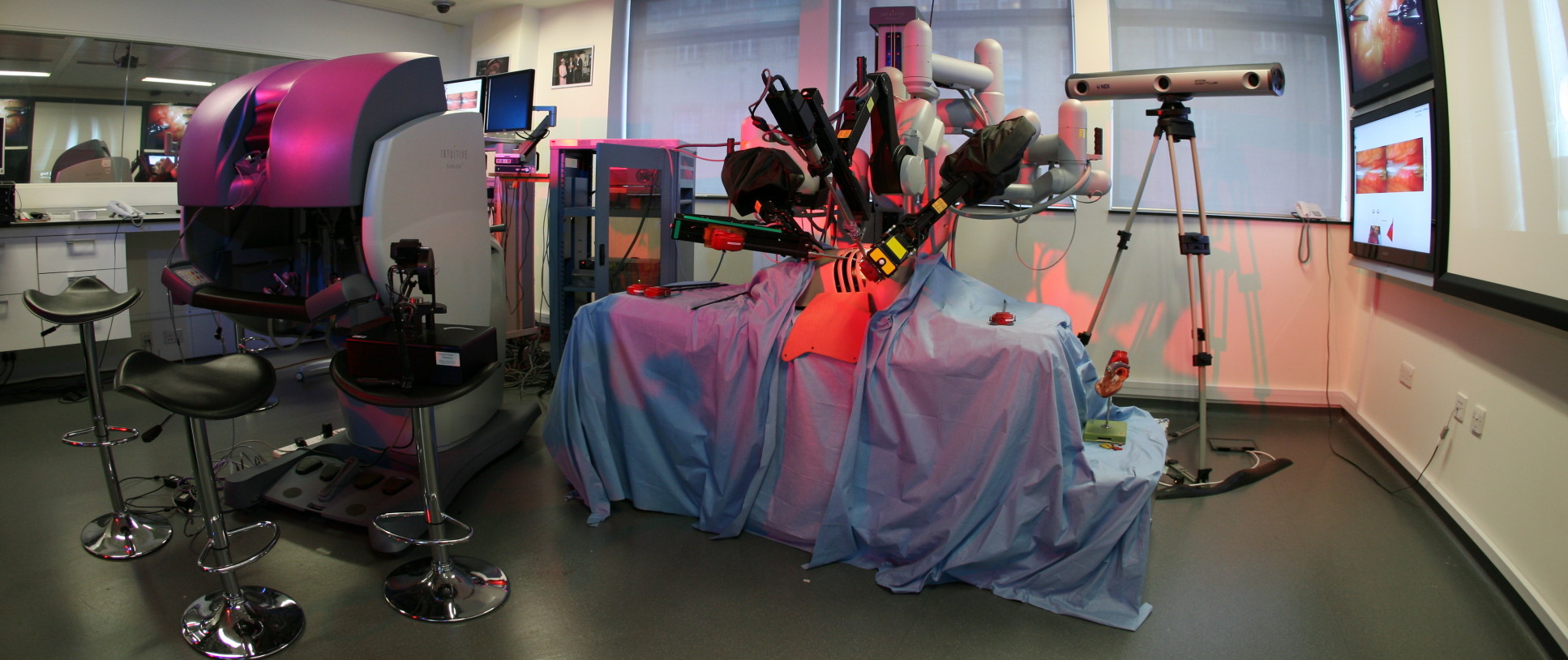
What we do
We perform translational research with the goal of improving clinical outcomes from both benign and malignant colorectal diseases. Our multidisciplinary team performs research in multiple cross-cutting domains that include basic and ‘omics sciences, imaging, data science, robotics and surgical technologies. Our strategic areas of interest are in the prevention and early detection of GI disease (biomarker discovery), physiological characterisation of GI symptoms, surgical precision and safety.
Why it is important
Over 1.8 million cases of colorectal cancer are diagnosed globally each year, and the increasing age-standardised incidence rate is climbing for reasons that are poorly defined. Colorectal cancer remains the second leading cause of cancer related deaths globally.
Benign diseases of the colon also represent a major burden of disease. 6.8 million cases of inflammatory bowel disease are diagnosed each year globally with an increase in the age-standardized prevalence. Similarly, disorders of gut-brain interaction, have major economic effects on health care systems and adversely affect quality of life.
Surgery remains a critically important component of the multimodal treatment of these disorders, yet surgery itself can have complications that lead to poor bowel function, reduced quality of life and even death. Our research is important because it will lead to better diagnostics and treatments and, ultimately, improved outcomes for our patients with colorectal disease.
How it can benefit patients
Our strategic goal is to improve survival and quality of life from diseases of the lower gastrointestinal tract through their prevention, early detection, characterisation and personalised treatment.
Summary of our current research
We perform research in four major research domains: 1) cancer prevention and early detection; 2) advanced cancer management and survivorship; 3) characterisation of the mechanisms of colorectal function and 4) precision surgery / therapy for colorectal disease. Our group has an established biobank and we perform discovery research and clinical trials.
Our research domains are served by seven cross cutting research themes:
Research
- Microbiome research
- Translational metabolic profiling and genomics
- Gut on chip and organoid technologies
- Digital surgery and artificial intelligence
- Surgical Innovation and Robotics
- Functional research
- Clinical trials
Additional information
Our researchers
Ara Darzi
/prod01/channel_3/media/migration/faculty-of-medicine/portrait-9_1612459891406_x4.jpg)
Ara Darzi
Professor of Surgery
Emma Victoria Carrington
/prod01/channel_3/media/migration/faculty-of-medicine/thumbnail-ev-carrington-academic-headshot_1612530705054_x4.jpg)
Emma Victoria Carrington
Clinical Senior Lecturer
James Kinross
/prod01/channel_3/media/migration/faculty-of-medicine/james-kinross-334-x-364-1609949056778-x1_1612460129354_x4.jpg)
James Kinross
Clinical Senior Lecturer
Jamie Murphy
/prod01/channel_3/media/migration/faculty-of-medicine/portrait-10_1612460202499_x4.jpg)
Jamie Murphy
Clinical Senior Lecturer
James Alexander
/prod01/channel_3/media/migration/faculty-of-medicine/personal-photo-tojpeg-1568824712704-x1_1612460294189_x4.jpg)
James Alexander
Clinical Lecturer
Alasdair Scott
/prod01/channel_3/media/migration/faculty-of-medicine/portrait-scott-3-1612265265891-x1_1612460380907_x4.jpg)
Alasdair Scott
Clinical Lecturer